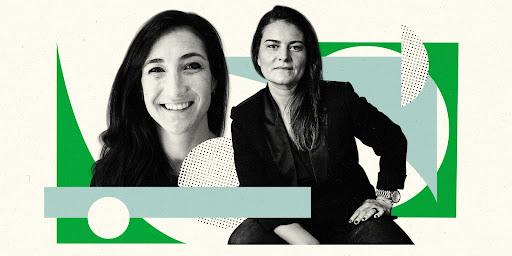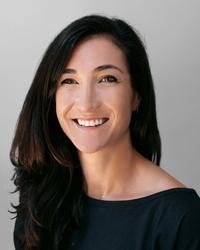8x ARR in 3 Years: How CMO Andrea Kayal Books Results
I sat down with Andrea Kayal, CMO of IT technology company Electric, to discuss the importance of fully resourcing your marketing team, how to measure success, and the checklist she uses to align with founders.

Being an early stage founder means transitioning from tactical to strategic operations—and partnering with new and existing executives in this pursuit. Easier said than done. In the Around the Exec Table series, we feature tips, insights, and best practices, role by role. Keep up with new installments by following me on LinkedIn.
Should a CMO build brand or demand? It’s a common question Andrea Kayal—CMO of IT technology company Electric—would like to see never asked again. “The brand does not matter if you cannot figure out how to sell and market your product.”
This type of thinking speaks to how she’s been so successful working alongside Founder and CEO Ryan Denehy on what’s now a unicorn business. Since joining three years ago, Andrea has helped Electric grow from $8 million to a projected $70 million ARR by the end of this year.
I first met Andrea nearly a decade ago, when she was on the marketing team at Sailthru and I was Head of People. Now as a Partner at Primary, I have the privilege of working with her and seeing in practice what she means when she says the “C” in her title is just as important as the “M.”
In this conversation, she shares her perspectives on how marketers can become successful executive leaders—and why founders should care.
How would you define the role of a CMO?
The “M” in CMO can mean different things. At Electric I oversee marketing, sales development, business development, and partnerships, so my role is broader than just marketing. It’s about building the brand and demand. It’s thinking, “How are we going to set ourselves up for the next phases of growth?”
Most Marketers have spent their entire career being a great marketer, but thehe “C“ is just as important as the “M.” I'm not just a marketer; I’m also a business partner. Here are some examples of what that means:
- You need peripheral vision, so I’m reading the S-1s of our competitors and staying on top of the market to make sure that we don't have blind spots.
- You need foresight–I already know what my marketing team looks like in 2024.
- You need to build a business culture where people want to work.
What metrics do you use to measure success?
Bookings. It all comes down to bookings.
All the investments we make into our brand, like our annual conference Elevate, should raise brand awareness and bring people into the funnel. My job is to get the sales team the demand they need to hit our bookings goal.
And do you quantify what demand looks like?
Absolutely. All four teams have pipeline numbers, which are determined by close rates. For example, business development has a higher close rate, so they have a slightly smaller pipeline goal than marketing and SDR, which are in the 20s and therefore need to generate more pipeline..
I often hear from founders that they don’t know when to hire for strategy versus tactical execution. How do you know when it’s time to hire a CMO?
The speed at which you're growing determines when you need a CMO. If you're under 30% growth rate, don't worry about it for a while. But if you’re quadrupling and quintupling? Then now. Now is the time.
At Electric, Ryan wasn’t planning to hire a CMO right after Series B, but he wanted to be at $250 million in five years. So I said, “That doesn't happen overnight. You need someone more senior if you have ambitions like that."
What should founders expect from a new CMO?
Your CMO should be an expert in growth, with knowledge of the most important growth KPIs, a track record of success, and a clear strategy of investments and tactics. They should also be able to weigh in on the business beyond granular strategy, like “We're going to run Google ads." You should be able to give them guideposts like “I want to IPO” and trust they’ll work with the Head of Sales to build a go-to-market engine to get there.
There’s often debate around whether a CMO should be building the brand or building demand. I'd like to put a stop to this: The brand does not matter if you cannot figure out how to sell and market your product.
How can a founder get the most leverage out of the CMO?
Collaboration and transparency are key. My favorite part of the job is working together with the executive team to co-develop the vision and strategy. Every quarter, we sit in a room to discuss our current status, our goals, and our pacing.
The one caution I’d give to founders is to really listen to your sales and marketing leaders and make sure any plan you give to investors is mutually decided upon. If sales and marketing are signaling, “The close rate in the plan is too high,” or, "We don't think that volume of demand is realistic based on our sales cycle,” you need to listen and adjust. I've been at companies where that hasn’t happened and it’s a recipe for a disaster.
On the flip side, why do you think founders misunderstand the role of a CMO?
I think a lot of marketing leaders struggle to clearly articulate what value they will drive for the business. I personally have a checklist of things I review with the CEO before I join a company to make sure we’re aligned and that their expectations are realistic.
What’s on your checklist?
Here’s the list.There is a lot on there, but at the top: “Am I going to be resourced?” CEOs seem to think marketers can get on the street with a twirly sign and generate pipeline. That's just not how it works. I spend money. I'm like a hedge fund manager. You give me money to invest in marketing activities and in people, and I’ll tell you how much I can produce.
Also, “What is your NPS? I know you love your product, but do your customers?" Every CEO loves to sell you the dream, but it’s very difficult to generate demand if you're fighting against the market.
SPEED ROUND
Is there a CMO that's really inspired you?
I like to follow CMOs who joined companies when they’re small and helped them grow, like Kyle Lacy, Daniel Incandela, and Gonto [Martin Gontovnikas].
What other brands do you look to for inspiration?
I hate to say this becuase it’s so obvious, but the king—or queen—of all branding is Apple. Their communication is so clear and concise. I also really like Pendo, Squarespace, and Intuit.
Most exciting marketing trend at the moment?
Events are coming back. Though my favorite marketing tactic is sending gifts. People love receiving stuff.
Skill or attribute you look for when you hire?
Passion.
Favorite go-to interview question?
Do you like animals?
Do you hire for experience or intrinsics?
It depends, but intrinsics.
What's your favorite New York City spot for breakfast or lunch meeting?
Breakfast, Maman in Tribeca.
Any blog or podcast that you learn a ton from?
I love the Morning Brew. It takes two seconds to read and you're like, "Okay, I know everything there is to know today."
Favorite book you read in the past year? For business or pleasure.
For pleasure, Verity. It was a great thriller.
Go-to stress release activity?
Running.
And your favorite way to spend a weekend?
Hanging out with my family.
